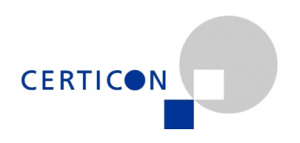Importers and Exporters news - Reform of the Generalised System of Preference (GSP)
28.07.2011Company: Deloitte
For forty years, the European Union has applied unilateral tariff preferences on goods imported from developing and the least developed countries. The current preferential regime is used by 176 countries. Although the Generalised System of Preference has undergone a number of partial changes, it is time for significant reform.
Full-text English version:


Objectives of the GSP Reform
The provision of customs preferences should focus more on imports from the countries that really need it. It is widely known that many of the countries enjoying customs preferences have recently seen major economic development and have become competitive in international trade. The reasons for the unilateral provision of customs relief to these countries has thus disappeared. For this reason, the primary objective is to focus on the poorest countries, namely those with a low level of economic performance and income.
Another objective of the GSP reform is to create long-term stable and foreseeable conditions for developing countries. The first step in achieving this objective was a significant amendment to rules of origin applied in trade with these countries, which has been in effect since the beginning of 2011 and which significantly simplifies the method of determining and proving the preferential origin. In the future, other conditions under which developing countries may use customs preferences should also be clearly defined.
The effect of the existing lists of developing and the least developed countries, as well as the list of the goods that are subject to customs preferences, has been extended until the end of 2013 in order to provide enough room for preparing the reform. Starting in 2014, a significant reduction in the number of countries using unilateral customs preferences in imports to the EU can be expected.
Which countries will be removed from the list?
The list of beneficiary countries will no longer include:
Countries classified by the World Bank as high- and middle-income economies (based on Gross National Income per capita for the past three years) – as a result, a number of countries should be removed from the list, such as Russia, Kuwait, Qatar, Saudi Arabia;
Countries which benefit from other preferential arrangement with the EU such as free trade agreements, economic partnership agreements or special autonomous arrangements – this method of exclusion will apply to a number of countries in Africa, the Middle East, Southeast Asia, the Pacific region, the Caribbean, and Latin America; and
Overseas countries and territories (“OCT”) that use the autonomous system of customs preferences intended especially for the OCT.
What goods will be imported under the preferential regime?
It is anticipated that the list of commodities imported without customs duty or with reduced preferential customs duty will be maintained. In addition, the formal proof of origin for goods imported from a developing country remains a significant condition for entitlement to preferential treatment. Certain modifications will be made to the system of “graduation”, according to which certain groups of products from certain countries will be removed from the preferential regime when their imports exceed determined thresholds.
The system of customs preferences provided to the least developed countries based on the EBA principle (Everything But Arms) should be retained. All goods originating from the least developed countries except for arms will be imported without customs duty and tariff quotas.
What does this mean for you?
The existing system of customs preferences provided for goods originating from developing countries was extended until the end of 2013
Starting in 2014, the list of developing countries using preferential treatment in the import to the EU will be significantly reduced.







